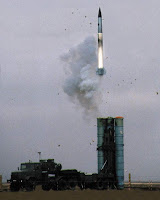Tatyana Barteneva, mother of Dmitry Bartenev Irina Verenich wife of Aleksei Andrushin
Irina Verenich wife of Aleksei Andrushin  Tatyana Seleven, wife of Igor Borisov
Tatyana Seleven, wife of Igor Borisov Nastya Strelkova, Andrushin's sister
Nastya Strelkova, Andrushin's sister
Arkhangelsk regional court is trying six for seizure of the Arctic Sea: Alexei Andryushin, Dmitry Bartenev, Alexei Buleyev, Igor Borisov, Vitalijs Lepins and Yevgeny Mironov Five defendants pleaded partially guilty, and one pleaded guilty to all the charges,"
The review of the 52-volume criminal case is expected to last several months. The families of the men on trial for piracy say the highly unlikely hijackers are the biggest victims in the case. Few in Estonia believe there's any chance they'll soon return to Lasnamae.
People in Tallinn's Russian community who know the men dismiss the allegations as absurd. They say the alleged hijackers are ordinary layabouts, petty criminals and heavy drinkers who couldn't possibly have been capable of pulling off a major international heist on the high seas.
Tatyana Barteneva's son Dmitry Bartenev is one of the men on trial in Moscow. Inside the tidy, cramped apartment she shared until recently with both her two grown sons, the 63-year-old nurse with a blond bob hairstyle defends Bartenev and the other alleged hijackers as the victims of a plot they didn't understand.
"I don't think they're such idiots as to pick a fight with Russia," she says. "Why would they need that?"
Barteneva has lived in Tallinn since the age of 9, when her father, a Soviet military officer, was posted here in the 1950s. Her late husband was the captain of a fishing trawler, and their son Dmitry took odd jobs at sea.
Tallinn's Lasmanae neighborhood, the home of many ethnic Russians
According to his brother Aleksei Bartenev, Dmitry was unemployed last March when he noticed a leaflet outside a local supermarket advertising security work in Spain. A big man with prominent features and a crew-cut, the 42-year-old sometime sailor was on probation for drunk driving. He described the job to several of his friends, who jumped at the chance to travel abroad for pay.
The men shared similar backgrounds. Born in Estonia, all but one never met the tough requirements for Estonian citizenship. Locals say Bartenev and others like him are part of a lost generation of former Soviets who were unprepared to make it in what became a new country after the communist collapse.
“I think they were framed, and it is not just my opinion, everybody who knows them also thinks so,” Alexei Bartenev. “They were seeking a job and got involved in a political conflict, were made hostages of a political game.”
Sitting in a popular local bar called Zanzibar, where leopard-print seat pillows offer some visual relief from the uniform apartment blocks outside, Irina Verenich the wife of Aleksei Andrushin -- an unemployed, 28-year-old construction worker --"I told him so many times, 'What are you doing?'" she says. "I said, 'You help people you don't even know, and no one will help you in return.' And that's exactly what happened."
In addition to the six Russians from Lasnamae, two men from Latvia signed up for the work he offered. Several of the men posted notices on a popular social-networking site saying they'd be away for several months. They told their families they'd be gone until early October.
earlier 1 earlier 2 earlier 3
































